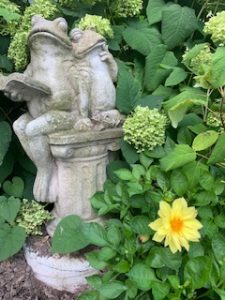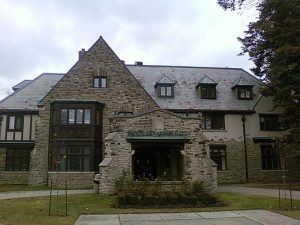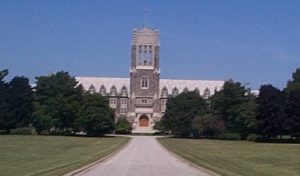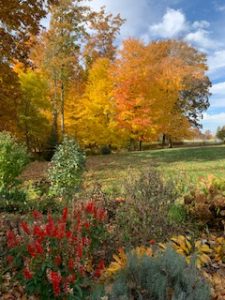
We live in the country, but within a short distance are coffeehouses, shops, restaurants, a library and theatre. As I walk the sidewalks and down the hill into the village, my solitary life becomes participation in a panorama. There are people cutting grass, shingling rooftops, walking dogs, hammering on construction projects, smiling a greeting.
These beautiful fall days seem to beg gathering up and I want to savour them as if they were crisp harvest apples. The leaf canopy has exploded in vivid colour and I’m scuffling through leaves on my walk. New vistas appear teasingly over the lake as the trees bare their branches.

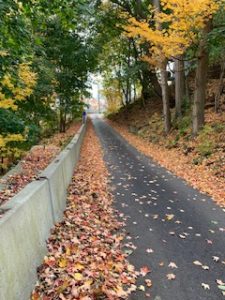
A colourful life is a kind of euphemism for saying that perhaps the colouring was done outside the parameters of polite society. But as we age along with family and friends, we are constantly reminded that our life under the sun is so fragile, our time so limited. We hunger for riotous colours, see them in the plants and the animals and in odd-looking creatures lurking deep in the oceans.
Truly all of us have the opportunity to live a colourful life. We just need to open our eyes to the multi-hued world around us, open our imagination to the worlds inside of us. To stop rushing blindly on, and to celebrate the gifts of our Creator.
Working in the Apple Orchard
Autumn and the fulfillment fruit
Of blossoms’ beauty back in May
Clothes discarded on limbs of trees as
Chilly morning warms to the day.
Strapping on a basket
Reaching among the branches laden
To pluck the ripe red apples there
Cradled gently in their haven.
In autumn sunshine, the warmth
Beams on my upturned face.
A tiny owl stares unblinkingly
From its dark recess, a hidden place.
And I am filled with gratitude
Happy in the time spent there.
For all too soon the cold winds blow.
I breathe the purest, freshest air.

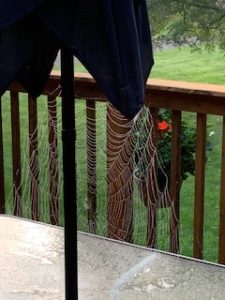 We had only been away for about five days, but in the damp September air, conditions proved perfect for our backyard spider to spin an elaborate web to trap unwary late-summer insects.
We had only been away for about five days, but in the damp September air, conditions proved perfect for our backyard spider to spin an elaborate web to trap unwary late-summer insects.